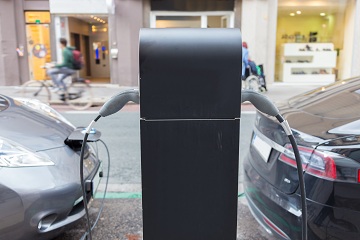Providing electric vehicles with longer lasting energy

Related topics
Innovation Transport Smart, green and integrated transport Germany Greece Italy United Kingdom Nanotechnologies, advanced materials, advanced manufacturing & processing, and biotechnologydate: 14/01/2015
Project: DEVELOPMENT OF HIGH ENERGY/HIGH POWER DE...
acronym: AUTOSUPERCAP
See also: CORDIS
Contact: Contact
There is growing acceptance that our fuel-based economy is no longer sustainable, especially if Europe is to meet its target to reduce greenhouse gas emissions and avoid climate change.
Replacing petrol-based cars with more electric vehicles – which use carbon-free energy sources and emit no CO2 – will help, but serious obstacles to their commercialisation remain. One key constraint is the fact that electric vehicles have limited driving ranges before they need recharging. One approach is to improve energy efficiency and preserve battery life.
This is what the EU-funded AUTOSUPERCAP has achieved. The project, which was completed in July 2014, focused on improving supercapacitors, the energy storage devices that supply power to electric vehicles during acceleration, and can recover energy during braking. The project successfully identified certain materials and technologies for future exploitation, with a view to eventual commercialisation.
A new lease of life
These supercapacitors act much like a battery, delivering rapid power and recharging almost infinitely without a drop in performance. By improving their efficiency further, AUTOSUPERCAP aimed to improve the performance of electric vehicles and make them more appealing to car buyers.
“The aim of this project was to develop supercapacitors of both high power and high output to weight at affordable levels for the automotive industry, and of higher sustainability than many current electrochemical storage devices,” explains project coordinator Tina Lekakou from the University of Surrey, UK. “That meant developing effective power systems with reduced weight.”
Taking the latest innovations in carbon-based materials, the project team successfully developed a bank of supercapacitor cells capable of achieving a similar level of performance as conventional cells, but with 21% less weight. In preliminary studies, these new supercapacitors were able to reduce the pulse load on the battery, helping to extend battery life.
“This is an impressive improvement. We also estimate that supercapacitors can extend battery life by between 400% and 2100%, depending on the type of battery and how the vehicle is used,” adds Lekakou.
The project has demonstrated the long term viability and benefits of supercapacitors, and should provide researchers with a great deal of encouragement that with the right materials and technology, these components can be manufactured affordably, says Lekakou.
Material success
A key breakthrough in the project was the identification of new materials capable of developing these lightweight yet energy-dense supercapacitors. Novel procedures and designs for new energy cells were first tested and then used to construct a supercapacitor capable of successfully starting an engine.
The project also investigated the long-term environmental impact of the materials used for the new supercapacitor. It has proposed possible ways to recycle all the carbon materials used as means of achieving a sustainable way to produce the supercapacitors.
Work on recycling focused on the development of innovative methodologies for dismantling the supercapacitor case and packaging, and then separating electrode particles.
Environmental considerations ran through every aspect of the project, with the ultimate objective being to encourage the commercialisation of electric vehicles and to make greener transport a more viable and attractive proposition.
The EU has stated that it aims to have between eight and nine million electric vehicles on the road by 2020, and in 2011 launched the European Green Cars Initiative (EGCI). The AUTOSUPERCAP project was part of this initiative, which supports the research and development of road transport solutions that have the potential to achieve long term sustainable results.
